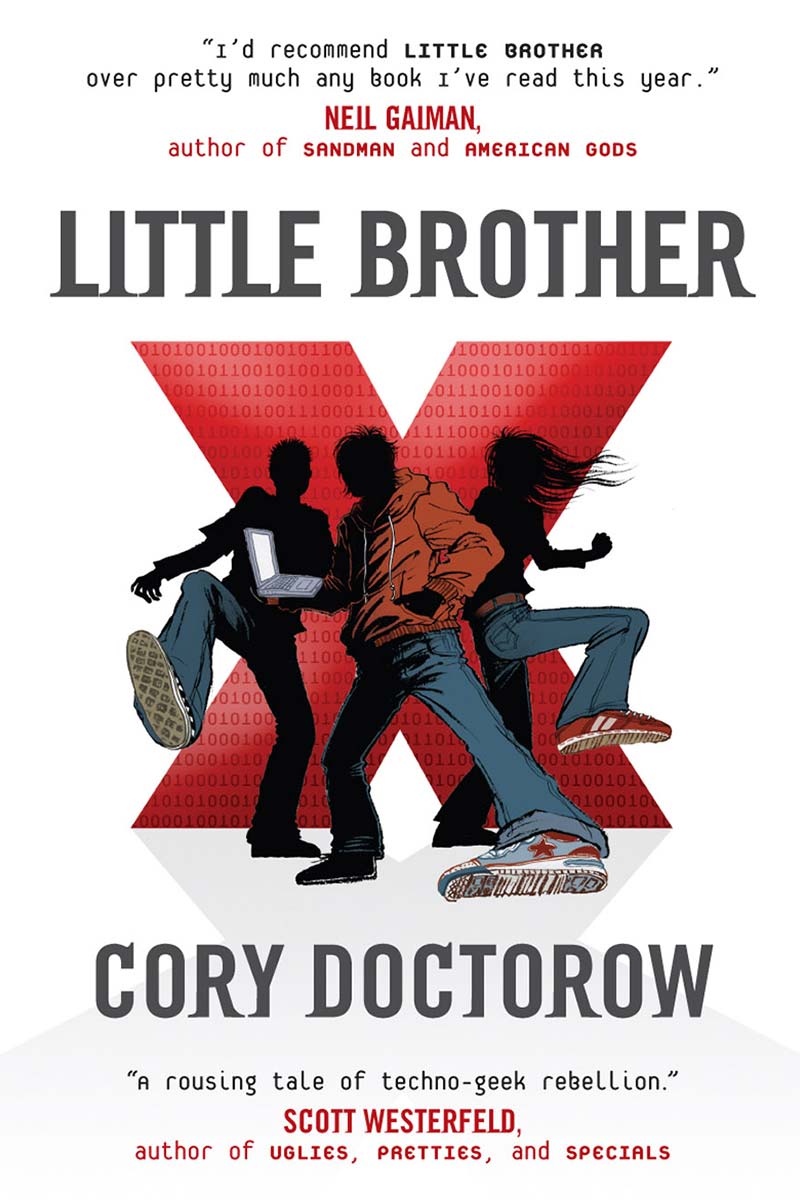Little Brother is not a light-hearted book. Many of the “pro-revolution” YA books I’ve read in the past few years go from resistance to victory without really passing through pain and sacrifice. In the course of this book Marcus and his friends, and others they don’t know of, are tortured, and each time Marcus comes up against the mentality that official suspicion must rest on something, that people must have done something or they wouldn’t be in trouble. Marcus has to deal with betrayal from some of the adults in his life, and the discovery that not all his friends can or will follow him. He learns some hard truths about his own privileged position as he realises that this war against youth is also a war against non-whites. He discovers that the America he understood as historical is not a consensus, that there is no consensus America, only one that has been bitterly contested time after time and is safe only if people fight for it to be safe. Even his victory will be partial, as he discovers that there is no way he is going to be allowed to think of himself as wholly innocent.




























